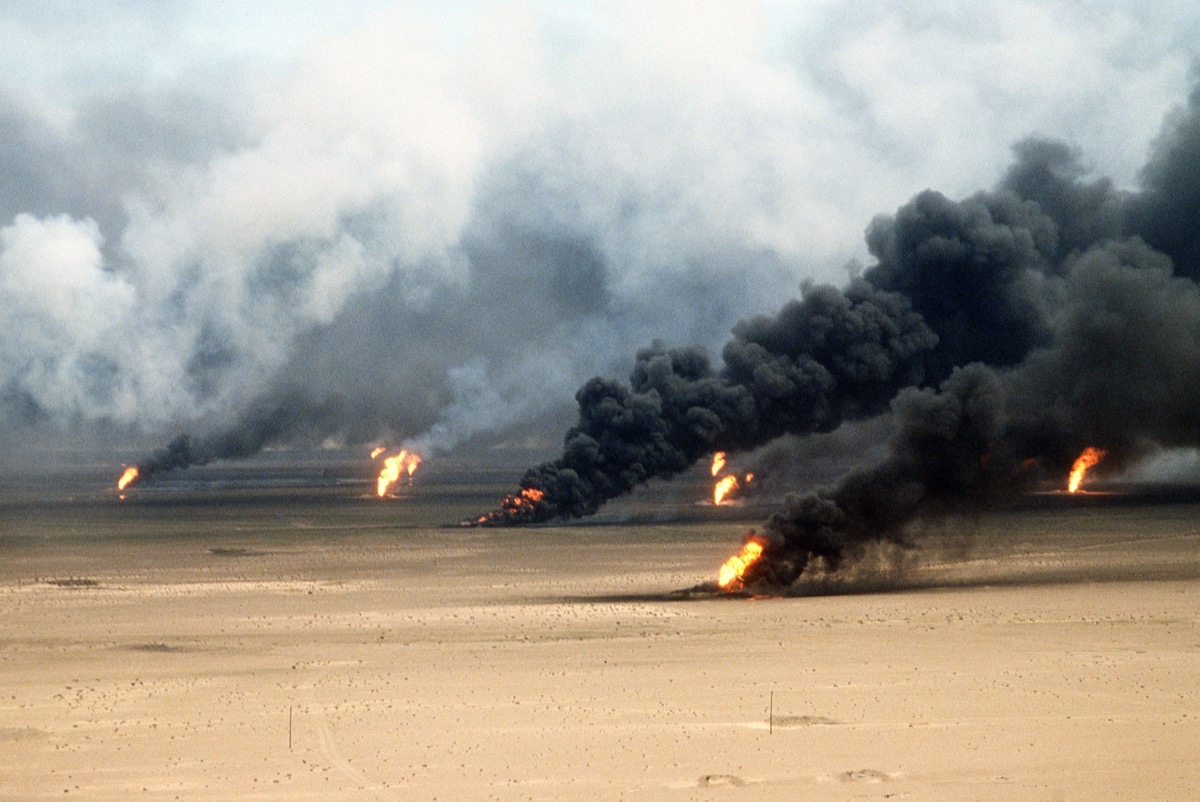Vaccinations
Because of the danger to ones health during the Gulf War, many soldiers were vaccinated above and beyond the normal amount in a very short period. In fact, United States military personnel received up to 17 different vaccines for things like polio and yellow fever, as well as more experimental solutions that had yet to be approved for things like botulinum toxoid and anthrax.

Since the vaccines had not been tested, there is no telling what kind of side effects these experimental medicines had on the men and women. It is possible that the vaccinations compounded other factors to create Gulf War Syndrome.
Depleted Uranium (DU)
During the Gulf War, DU was utilized for the first time in human history. Depleted uranium was found in both armored vehicles and munitions. The reason DU was used so readily is how available it is as a byproduct of nuclear energy and weapons production.
During Desert Storm, there was over 350 metric tons of depleted uranium in use, and about 3-6 million grams had been released into the atmosphere. There is some thought that having inhaled these particles of depleted uranium could be contributing to Gulf War Syndrome, especially since depleted uranium is responsible for causing chemical toxicity and radiation poisoning and also has carcinogenic and mutagenic properties within the human body.
Veterans of the Gulf War have been found to have DU in their bodies. Oftentimes, there is an elevated number of uranium isotopes in the urine. If you believe you were exposed to DU during your tour in the Gulf, you should get tested for uranium in your urine as soon as you can.
Oil Well Fire Smoke
When the Iraqi army began to retreat from their strongholds in February 1991, they ignited 600 oil wells—and those wells burned for about 9 months before ceasing. The fires produced tremendous amounts of a cloying black smoke that usually descended towards the ground, where the troops stationed there inhaled the fumes.

During this time, the air pollution in the Gulf was infinitely greater than what someone would encounter in even the most polluted western city. Considering the effects of even prolonged exposure to slight air pollution, one can begin to fathom what happened to the troops inhaling the smoke from the oil wells.
Fuel
Many veterans from the Gulf War can vividly recall the diesel and gas fumes from the battlefield. It has been suspected that this continuous expose to gas and diesel chemicals in the air could be a cause for GWS and other ongoing health conditions.
More from Things Health
-
Polycystic Ovary Syndrome
Polycystic ovary syndrome is an overall endocrine disorder with its prevailing manifestation on female reproduction. It is identified if any two problems of the following…
-
Bilateral Carpal Tunnel Syndrome
While creating an inability to do regular functions in one hand could make life miserable, issues occurring in both the hands could make life hell.…
-
Heart Disease And Obesity
Binge eating is regarded an eating disorder whenever you cannot stop yourself from eating a lot of food very quickly, even whenever you are not…
-
Mindfulness And Meditation
Meditation was found to have a favorable influence on the body, brain, and spirit. Successful direction of persistent pain, reduction in blood pressure level, and…
-
The Rarest Medical Conditions in the World
Having a disease that is more rare does not necessarily mean that it is associated with more severe symptoms, even though this is often how…






